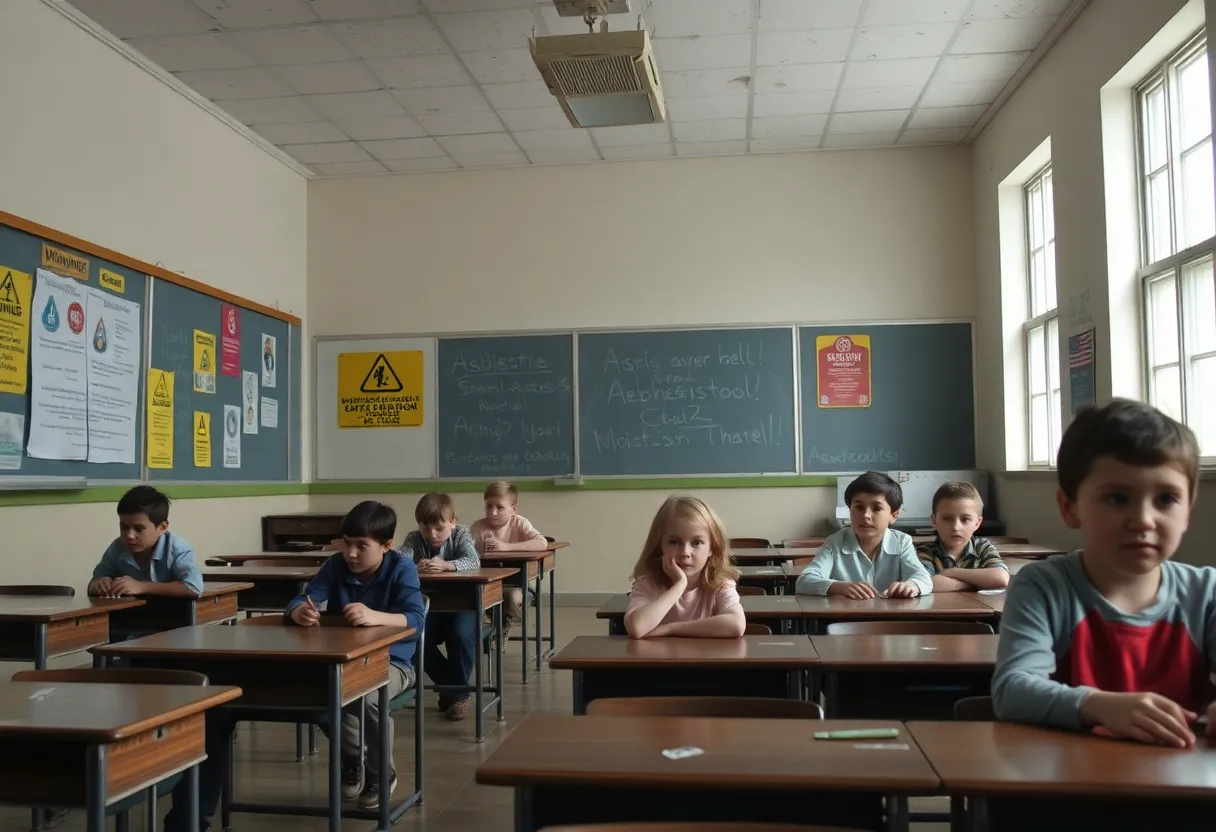News Summary
Federal charges have been filed against Philadelphia’s public schools for failing to perform essential asbestos inspections, raising serious safety concerns.
Philadelphia’s Public Schools Hit with Federal Criminal Charges Over Asbestos Inspections
Unprecedented Legal Action Against School District
In a landmark case that could reshape how public schools manage hazardous materials, federal prosecutors have levied criminal charges against Philadelphia’s public school district for failing to perform essential inspections for damaged asbestos. This marks the first time a U.S. school district has faced such environmental criminal allegations, raising serious concerns about student safety and environmental accountability.
Charges and Violations Unveiled
The school district now finds itself facing eight counts of violating the Toxic Substances Control Act due to lapses in asbestos management over a troubling five-year period. Investigators revealed that despite the presence of approximately 300 out of 339 district buildings containing asbestos—a hazardous material associated with severe health risks such as cancer and lung disease—the necessary inspections were not conducted in a timely manner.
The allegations include failures at specific schools like William Meredith Elementary and Frankford High School, where multiple areas of damaged asbestos were recorded. In some instances, make-do solutions were employed, such as using duct tape to cover exposed materials, further demonstrating insufficient management practices. The decision to initiate criminal charges underscores the severity of the school district’s mishandling of asbestos risks.
Deferred Prosecution Agreement: A Lifeline for Improvement
To address the serious allegations, a federal judge’s approval is needed for a Deferred Prosecution Agreement (DPA) that would allow the school district to avoid prosecution while it makes necessary improvements. This agreement subjects the district to a rigorous monitoring program spanning approximately five years to ensure compliance with federal asbestos management laws. If the district adheres to the terms of the DPA, it stands a chance to have the criminal charges dropped, provided they show they are committed to following through with necessary improvements.
As part of the agreement, the district has already indicated that it is taking substantial steps to enhance its policies regarding asbestos inspection and management. Among these steps is a commitment to train its workers on proper asbestos management techniques, aimed at preventing future violations and ensuring the safety of students and staff.
The Historical Context of Asbestos in Schools
Asbestos was a commonly used construction material until the 1980s when studies revealed its serious health risks, particularly related to respiratory diseases when its fibers are disturbed and become airborne. With the aging infrastructure of Philadelphia’s public schools, the potential risk posed by the undetected damage of asbestos becomes even more critical.
The federal government mandates schools under the Asbestos Hazard Emergency Response Act (AHERA) to conduct inspections every three years and interim inspections every six months. The failure to meet these standards has resulted in school closures due to safety issues, with six buildings shuttered during the 2022-23 school year due to asbestos that required removal.
Looking Forward: Commitment to Safety and Compliance
The school district has openly acknowledged its responsibility for the oversights in timely inspections and remediation of asbestos hazards. While it has faced severe scrutiny from the U.S. Attorney’s Office and the EPA’s Criminal Investigations Division for the past five years, the district also recognizes the government’s recognition of its efforts to improve its environmental management budget and practices.
As authorities closely monitor compliance with the DPA, the hope is that this unprecedented federal intervention acts as a wake-up call for educational institutions nationwide. With the safety and well-being of students on the line, streamlined inspections and enhanced management practices are crucial to ensuring that such lapses in responsibility do not occur again. The outcome of this case could set a precedent, compelling school systems across the country to prioritize the health of their students above all else.
Concluding Thoughts
Philadelphia’s public schools are now navigating a critical juncture that will test their ability to correct a tragic oversight. With the serious implications of asbestos exposure looming, the stakes are immense—not just for the district but for the future of student health and safety citywide. The eyes of the nation will be watching closely as the situation unfolds in the coming months.
Deeper Dive: News & Info About This Topic
HERE Resources
Rumors Swirl as EPA Considers Reversal on Asbestos Ban
The Uncertain Future of Asbestos Regulation in the U.S.
The Silent Danger of Asbestos Exposure: Urgent Need for Legal Action
Back to a Dangerous Past: The Asbestos Debate Intensifies
Concerns Surrounding Asbestos Removal and Regulations in Illinois
Asbestos Legal Battles: From Clarence Borel to Current Cases
Groundbreaking Study Reveals Genetic Insights into Malignant Pleural Mesothelioma
The Ongoing Threat of Legacy Asbestos: A Public Health Crisis
Health Under Siege: The Asbestos Crisis and Public Health Setbacks
Trump Administration Takes Steps to Reconsider Asbestos Ban



















